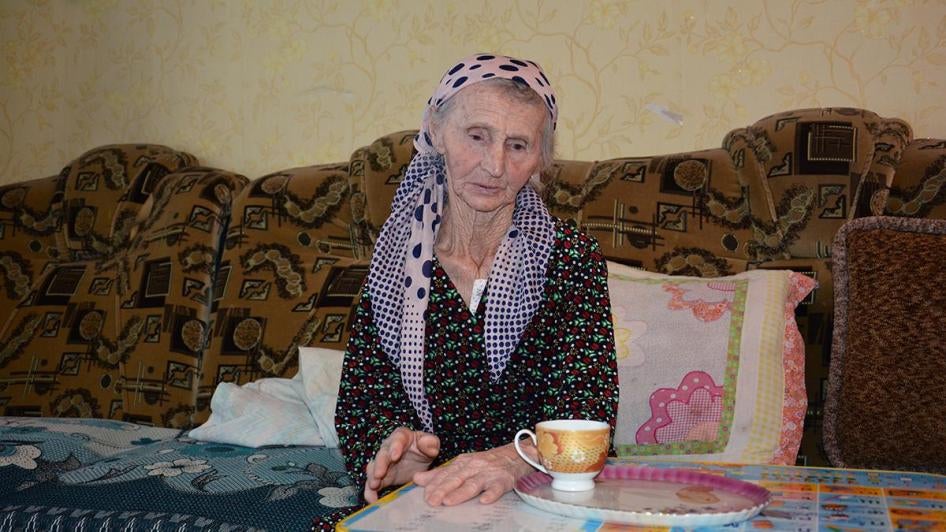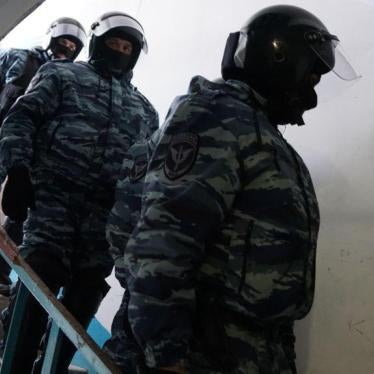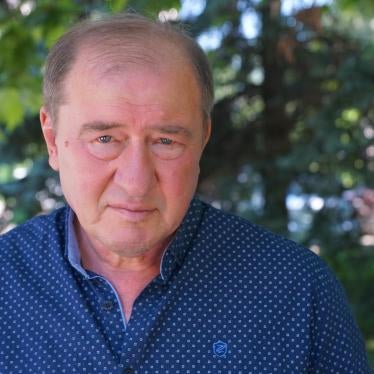Vedzhie Kashka, 83, is a powerful name in Crimea for her prominent role in the Crimean Tatar national movement and her work to defend rights of Crimean Tatars. She died in Simferopol on November 23, after Russia’s security services (FSB) raided a café where she was meeting with other leaders of the Crimean Tatar national movement. According to a journalist’s account, Kashka felt unwell during the FSB operation and died in an ambulance on the way to the hospital.
Russian authorities accuse the others at the meeting of extorting money from a Turkish national, who had allegedly borrowed money from Kashka.
In May 2014, a few months after Russia began its occupation of Crimea, Russian President Vladimir Putin met with representatives of the Crimean Tatar community to commemorate the 70th anniversary of the deportation of Crimean Tatars to Siberia, Kazakhstan, Uzbekistan, and other places. He promised support for cultural and political rehabilitation of Crimean Tatars to ensure, “a normal life for people and to create conditions for progressive development of the Crimean Tatar nation in their homeland.”
Kashka’s death is an important time to remember those words. The past few years have made clear they were meant only for Crimean Tatars who do not openly oppose Russia’s occupation of Crimea. But many do oppose it – according to the Ukrainian rights group Crimea SOS, around 25,000 Crimean Tatars left Crimea since the occupation began in 2014.
I was in Crimea in October and spoke with many Crimean Tatar activists about what happens to those who remain and speak out. They detailed relentless house searches, detentions, and criminal prosecution of their colleagues, friends, and family members, including an account of torture. I heard numerous stories of the FSB storming people’s homes, breaking doors and windows, denying access to lawyers, and referring to those they detained as “terrorists.” As Human Rights Watch documented in a recent report, Russian authorities in Crimea are carrying out a campaign of repression against Crimean Tatars who have persistently and peacefully opposed Russia’s occupation of their homeland and the ensuing abuses. Authorities portray politically active Crimean Tatars as extremists and terrorists and send a clear message to those who choose to stay that they should never feel safe to speak their mind.
Kashka’s death is a great loss for the Crimean Tatar national movement and for those documenting egregious abuses in Crimea.









